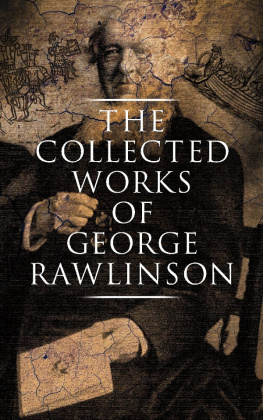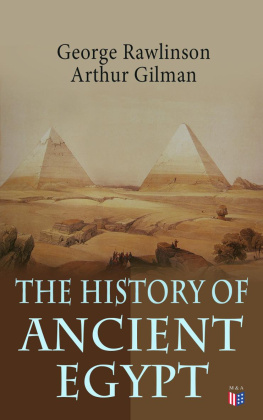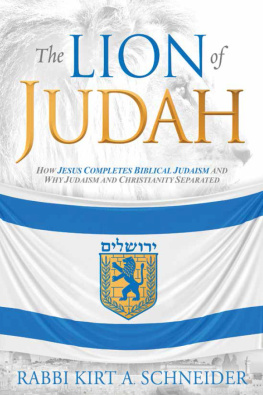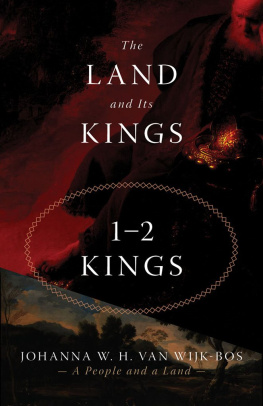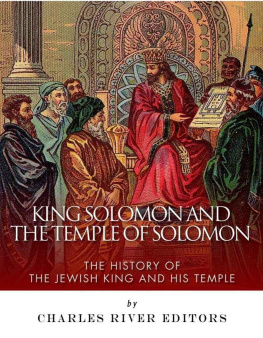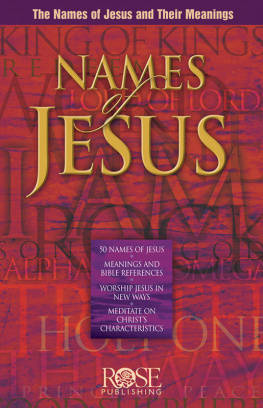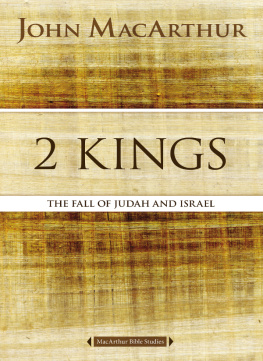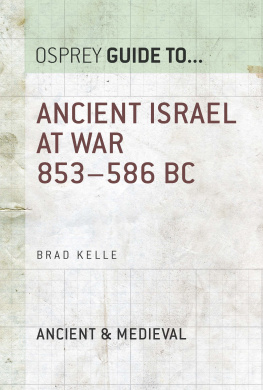THE KINGS OF
ISRAEL AND JUDAH
GEORGE RAWLINSON
Published by Left of Brain Books

Copyright 2021 Left of Brain Books
ISBN 978-1-396-31809-2
eBook Edition
All rights reserved. No part of this publication may be reproduced, distributed, or transmitted in any form or by any means, including photocopying, recording, or other electronic or mechanical methods, without the prior written permission of the publisher, except in the case of brief quotations embodied in critical reviews and certain other noncommercial uses permitted by copyright law. Left of Brain Books is a division of Left Of Brain Onboarding Pty Ltd.
Table of Contents
PREFACE.
The Books of Kings and Chronicles form the main source for the History of the Kings of Israel and Judah. They require, however, to be supplemented, especially for the later kings, by a careful study of the Prophetical Scriptures, particularly of Isaiah, Jeremiah, Ezekiel, Hosea, Amos, Micah, Habakkuk, and Zephaniah. Local colouring, the life and manners of the time, and the feelings of those contemporary with the events described, are derivable almost wholly from this latter source, which furnishes them often in tolerable abundance. The Antiquities of Josephus supply less material than might have been expected, and the character of all additional material derived from this quarter requires to be weighed in the scales of a careful and sober criticism. Considerable light is thrown on the history of some of the kings by contemporary notices contained in the monuments of Egypt and Assyria. It has been the endeavour of the writer, so far as the limits of space allowed, to make full use of all these various sources of information. His labours have been much lightened by the excellent work done by many of his predecessors in the field of Sacred History, as especially by the writers of the articles on the several kings in Dr. Smiths Dictionary of the Bible, Kittos Biblical Cyclopdia, Winers Realwrterbuch, and Ersch and Grbers Cyclopdie. He is indebted also largely to the graphic and brilliant narrative of his lamented friend, Dean Stanley, whose Lectures on the Jewish Church, though on some points they give an uncertain sound, contain the best account of the Divided Monarchy which at present exists in the English language. Ewalds History of the People of Israel has been also consulted throughout, but more sparingly used, the writers absolute rejection of the miraculous rendering him an untrustworthy commentator on a period of history wherein, according to the original authorities, the miraculous played a prominent part.
G. R.
OXFORD,
April 30, 1889.
CHAPTER I.
Rehoboam.
Education of RehoboamInfluence of his mother, NaamahHis early companionsHis accessionDemand for a redress of grievances, how metConsequent revolt of the Ten TribesThreat of warErection of fortificationsExodus of the Levites from IsraelReligious corruption of JudahExpedition of ShishakLater years of RehoboamHis domestic relationsHis character.
The Court of Solomon, whereat Rehoboam was brought up, has been described in a former volume of this series. A place where such wealth, such luxury, and such unrestrained polygamy were rife, was not a school apt for the formation of a strong or self-reliant character. When it is said that Rehoboam grew through boyhood to manhood in the atmosphere of an Eastern harem, enough is said to account for all that followed. In a harem princes, waited on by obsequious eunuchs, and petted by their mother and her female slaves, pass their time in softness and idleness, without any training worth the name, without the spur of emulation; flattered, fawned upon, courted; encouraged to regard themselves as beings of a superior kind, who can scarcely do wrong, who are to be indulged in every desire, and every fancy, and are never to be checked or thwarted. A judicious father shortens as much as possible the duration of this time of trial, early sending his sons out to the wars, or giving them civil employment, or at any rate removing them from the gynceum, and placing them under the direction and guidance of carefully chosen tutors and instructors. But Solomon, from the time that he fell away, is not likely to have been a judicious father, or to have greatly troubled himself concerning the training of his children. There were no wars to which he could send them, and he seems not to have employed them in civil government. Rehoboam, so far as appears, grew to manhood as a mere hanger-on upon the Court, the centre of a group of young men brought up with him (1 Kings xii. 8), and eager to flatter his foibles. The enforced idleness of an heir apparent, in all countries, and especially in the East, constitutes a severe trial to all but the best balanced natures, and too often leads to those evil and dissipated courses which are the great peril of youth at every period of the worlds history. We are not perhaps entitled to conclude absolutely, from the many passages of the Proverbs where the evil doings of young men are rebuked, that Solomon is actually glancing at the conduct of Rehoboam, or using the expression My son in any other than a general sense; but still the frequency and urgency of the remonstrances naturally raise the suspicion thatin part at leasta personal motive underlies them. As a personal element appears distinctly in what the wise king says (Prov. iv. 3, 4) of his own education and instruction, so it may well be that the keen reproofs and reproaches addressed to the foolish son are barbed by a personal sentiment of regret and disapproval.
It does not appear that Rehoboam during his youth had any special guide or instructor. No one is indicated as standing to him in the relation in which Nathan had, apparently, stood to his father. rites of the Ammonite religion. The strong leaning towards the worst forms of idolatry which Rehoboam showed soon after mounting the throne is not surprising in one subjected to the influence of such a mother at the most impressible period of human existence.
It is not recorded that Rehoboam had any brothers; but we can scarcely suppose that he was without them. Solomons wives numbered, at the least, seventy; and which possessed for the Israelite mind a curious fascination. We do not know, however, that, as prince, he had any great opportunity of showing his predilections, or that he shared at all in the direction of affairs under his father. The impression left by the Scriptural narrative is, that, down to his fathers death, he lived a mere courtiers life, a life without serious aims or stirring circumstances.
But a time came when there suddenly devolved upon him a great and most serious responsibility. Solomon died at an age which could not have greatly exceeded sixty, We may be sure that the crafty and unscrupulous Jeroboam fomented the popular ill-will; and it was probably in consequence of his machinations, that, on the meeting of the Tribes, their complaints were formulated, and delegates namedJeroboam being among the number (1 Kings xii. 3)to carry them to the king, and plead for a redress of grievances. Thy father, said their spokesman, probably Jeroboam himself, made our yoke grievous; now therefore make thou the grievous service of thy father, and his heavy yoke that he put upon us, lighter, and we will serve thee. The abolition of forced labour, and a reduction of taxation would, so far as appears, have contented them; they had no thought of revolt; they probably expected that their very moderate demands (as they considered them) would be cheerfully granted, and that the young king would be glad to purchase the popularity which most princes desire on their coronation day by the making of a few promises, which need not perhaps be altogether irrevocable.
Next page

